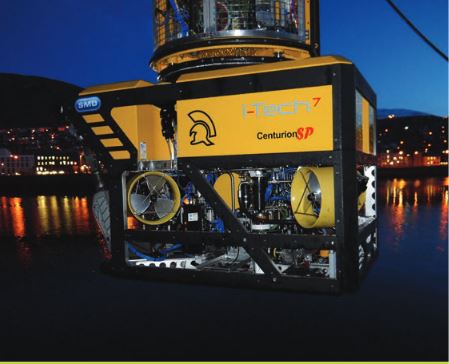Berlin advances mining in deep sea

The British company Soil Machine Dynamics is building equipment for the extraction of mineral resources under water. (Image: SMD)
A global competition for access to metals and rare earths is ongoing between the high-tech nations. Because Germany itself has no significant mineral resources, the federal government has projects in the Indian Ocean examined - to the horror of environmentalists.
In the race for valuable metals, the federal government is planning to break completely new ground: For this, Germany wants to examine the mining of metals and minerals in the deep sea. The Federal Ministry of Economics in Berlin announced that two exploration licenses were secured in the Indian Ocean. The permissions were granted by the International Seabed Authority based in Jamaica. So far, only licenses for exploration, not for dismantling, have been granted worldwide, said a ministry spokeswoman. "So there is currently no deep-sea mining taking place."
On the ocean floor there are large deposits of cobalt, copper, nickel and rare earth, which can be used for the production of digital devices such as smartphones and computers.
The environmental protection organization Greenpeace had protested in the morning in Berlin against the planned deep-sea drilling. The activists moved according to their own statements before the Berlin headquarters of the Federation of German Industry (BDI), the Federal Ministry of Economics and the Brandenburg Gate.
"Deep sea mining must be prevented"
The planned economic exploitation of manganese nodules and crusts threatens to destroy unique marine ecosystems and wipe out entire species, said Greenpeace. "If Germany implements its plans, we will be jointly responsible for the massive and long-term destruction of the sea floor," said Greenpeace marine biologist Christian Bussau. "Deep-sea mining must be prevented."
To this end, the environmental organization proposes to use mobile phones and laptops for a longer period of time, to recycle them more efficiently and thus to slow down the world's increasing demand for raw materials. In a representative survey conducted by opinion polling agency Kantar for the association, 80 percent in August had rejected the mining of metals and minerals in the deep sea. 89 said they would use digital devices for longer to conserve nature and reduce raw material consumption.
Berlin should get involved in oceans
Greenpeace also called for a global ocean treaty to protect the deep sea. By the spring of 2020, the UN is negotiating a framework agreement that could enable such marine protected areas. At the international level, Germany must do much more to ensure that the UN places at least 30 percent of the high seas under 2030 protection at the latest, said Bussau.
The Federal Ministry of Economics, however, referred to the seabed authority ISA. This is currently working out mining regulations, a so-called mining code. "These regulations will form the basis for future dismantling," said the ministry spokeswoman.
Source: n-tv.de, shu / DJ
